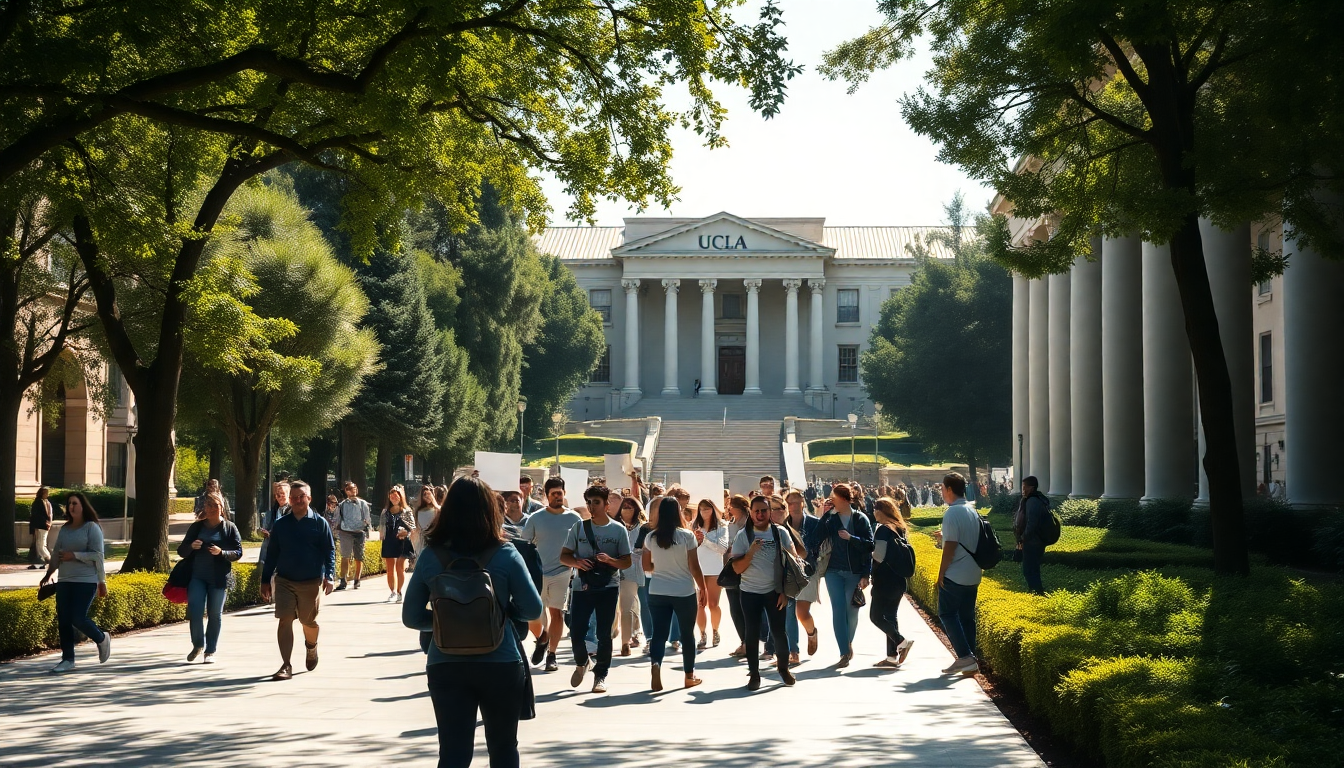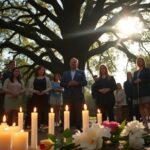Table of Contents
The recent demand from the Trump administration for the University of California, Los Angeles (UCLA) to agree to a staggering $1 billion settlement has raised numerous questions and concerns. This unprecedented proposal is part of a broader strategy to pressure universities regarding their handling of politically sensitive protests, particularly those related to pro-Palestinian movements.
As the landscape of higher education evolves amid political pressures, what does this settlement really mean for the future of universities?
The Context of the Settlement Proposal
UCLA, renowned for having the largest student body within the University of California system, finds itself at the center of a heated debate.
The administration’s request for a $1 billion settlement is remarkable not only for its size but also for the context in which it has emerged. The Department of Justice has indicated that this proposal is tied to allegations of civil rights violations linked to how the university managed protests advocating for Palestinian rights.
Statements from both the university and White House officials suggest a concerted effort to ensure compliance with policy directives among top educational institutions. Interestingly, prior settlements involving other universities, like Columbia and Brown, totaled significantly lower amounts, raising eyebrows about the rationale behind the hefty figure proposed for UCLA.
Could this be a case of setting a precedent?
The situation becomes even more complex with the suspension of $584 million in federal grants to UCLA, attributed to perceived civil rights violations. The administration claims that UCLA’s response to protests has fostered a hostile environment for Jewish and Israeli students, prompting this dramatic action.
However, many free-speech advocates argue that equating pro-Palestinian advocacy with anti-Semitism undermines the fundamental principle of free expression. Is this really the direction we want to take in education?
Implications for UCLA and Public Universities
UCLA President James Milliken has voiced deep concerns regarding the potential ramifications of this proposed settlement.
He emphasizes that such a payment could spell disaster for one of the nation’s leading public university systems. The financial burden wouldn’t just hit the institution; it could also harm students and the wider Californian community that relies on a well-funded public education system. What does this mean for students who are already facing rising tuition costs?
We can’t overlook the legal implications of this proposed settlement. Unlike private universities, public institutions are bound by constitutional protections surrounding free speech. Any agreement that seems to infringe upon these rights could face significant legal challenges. Past settlements have shown that students at publicly funded institutions enjoy broader constitutional rights, which complicates compliance with the Trump administration’s demands. How will this challenge affect the future of student activism?
California Governor Gavin Newsom has been vocal in opposing the administration’s tactics, urging university officials to resist what he views as coercive demands. His commitment to safeguarding the integrity of California’s educational institutions starkly contrasts with the actions taken by other universities, highlighting a potential divide in responses to federal pressure. Is California setting a new standard for how universities should respond?
Future Considerations and Trends
As this situation unfolds, the implications of the $1 billion settlement demand will likely attract attention both within and beyond academic circles. The ongoing discourse surrounding free speech, civil rights, and the responsibilities of public universities in politically charged environments will be crucial in shaping future policies and institutional responses. How will universities adapt to the increasing scrutiny on their handling of political activism and protests?
Moreover, the potential legal outcomes stemming from this situation could establish precedents affecting how universities navigate federal regulations and civil rights obligations. Stakeholders must keep a close eye on this evolving landscape, especially as educational institutions grapple with how to manage political activism on campus. What lessons can be learned from this pivotal moment?
In conclusion, the proposed settlement from the Trump administration is not just a significant financial demand; it represents a crucial moment in the ongoing conversation about the intersection of education, free speech, and civil rights. As UCLA navigates this challenging proposal, the implications for public universities across the nation could be profound and far-reaching. Will this be the catalyst for change in how universities engage with political issues?





